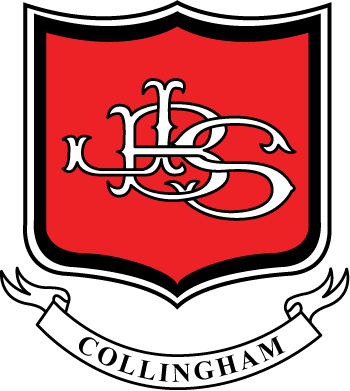RE
What Is Religious Education?
Religious Education (R.E.) aims to develop children's understanding of the world's religions as well as secular practices. Through religious education, children will learn about different religions and their traditions, practices and beliefs.
Intent
Religion is all around us and impacts our lives in so many ways. Our vision for Religious Education at John Blow Primary is to develop and educate the whole child through the integration of intellectual, spiritual, moral, emotional and social development. RE should enable children to build their sense of identity and belonging, which will help them flourish within their communities and as citizens in today’s diverse society. John Blow is at the heart of Collingham, which does not have a diverse community (culturally or religiously). As a school we realise therefore that it is vital that the R.E. in our school children reflects the diverse wider community and world in which we live. They will learn about different religions, belief systems, stories and festivals. We will teach pupils to develop respect for others, including people with different faiths and beliefs and help them to challenge prejudice. Within our teaching of RE we seek to encourage empathy, generosity and compassion thus prompting pupils to consider their responsibilities to themselves and others and to explore how they might contribute to their communities and the wider world. Religious Education for children and young people provokes challenging questions about the meaning and purpose of life. Culture capital is developed through learning about the world and the different religions and beliefs within it. The children become more knowledgeable, giving them the opportunity to understand and realise that different people, live, believe, act differently, therefore enhancing the children’s experiences of the world. Having access to the skills to question others, to understand the beliefs of others, which in turn makes them confident in their own beliefs and actions.
Implementation
Our whole curriculum is shaped by our school vision which aims to enable all children, regardless of background, ability, additional needs, to flourish to become the very best version of themselves they can possibly be. We teach the National Curriculum, supported by a clear objectives and knowledge and understanding progression. This ensures that objectives, skills and knowledge are built on year by year and sequenced appropriately to maximise learning for all children. At John Blow Primary we follow the ‘Religious Education for All 2021-2026’ document which is the agreed syllabus for RE in Nottingham City and Nottinghamshire.
At John Blow Primary School:
• Topics are blocked to allow children to focus on developing their knowledge and skills, studying each topic in depth. They are encouraged to reflect on their previous learning from in other year groups
• We have developed a progression of objectives, with each year group, which enables pupils to build on and develop their skills each year. This is supported with specific vocabulary and objectives for each topic.
• In order to support children in their ability to know more and remember more, there are regular opportunities to review the learning that has taken place in previous topics as well as previous lessons.
• At the start of each topic children will review previous learning and will have the opportunity to share what they already know about a current topic. Children complete a web of knowledge at the start and end of topics. Learning can also be reviewed through informal quizzes.
• To support teaching, staff access a range of resources and planning including SACRE, Plan Bee, BBC Bitesize, relevant texts, visiting speakers with artefacts and educational visits.
• Medium term planning for units will cover key Medium term planning will also highlight previous learning and links with the National Curriculum.
• Children are given opportunities, where possible, to study religious artefacts which lead to enquiry, investigation, analysis, interpretation, evaluation and presentation.
• We plan for effective use of educational visits and visitors, to enrich and enhance the pupil’s learning experience within the Notts Agreed Syllabus 2021-2026.
• Teachers use highly effective Assessment for Learning at different points in each lesson to ensure misconceptions are highlighted and addressed.
• Effective modelling by teachers ensures that children are able to achieve their learning intentions, with misconceptions addressed within it.
• Through using a range of assessment tools, differentiation is facilitated by teachers, to ensure that each pupil can access the Notts Agreed Syllabus.
• Pupils are regularly given the opportunity for self or peer assessment, which will then be used to inform planning, preparation, differentiation and address misconceptions within that lesson, or for the next lesson.
• Cross-curricular links are planned for, with other subjects such as maths, writing, art, design and technology and computing.
• Our Assessment Tracker (EAZMAG) allows us to use data to inform future practice.
Impact
By the time the children leave our school:
• Every child will have encountered a range of religions (including humanism) and worldviews according to The Notts Agreed Syllabus 2021-2026. • Every child will have been given the opportunity to ask questions and reflect on their own feelings and experiences (religious and non-religious).
• Every child will have developed their own appreciation and wonder of the community and world in which they live and will have developed their cultural capital.
• We will have created, within each child, a tolerant understanding of individual faiths in our school, our community, our country and our world.
